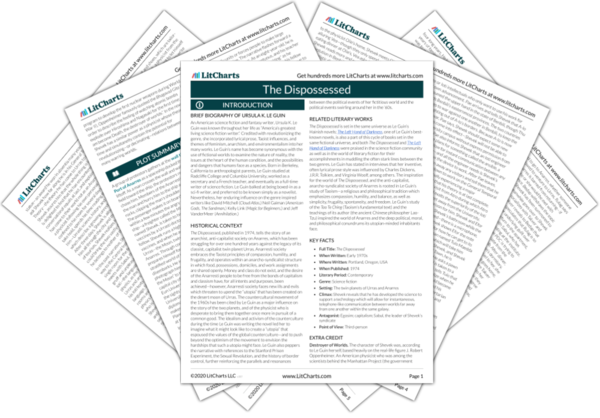LitCharts assigns a color and icon to each theme in The Dispossessed, which you can use to track the themes throughout the work.
The Failure of Utopian Ideals
Humility and Moderation vs. Ego and Excess
Individualism and Isolation vs. Collectivism and Solidarity
